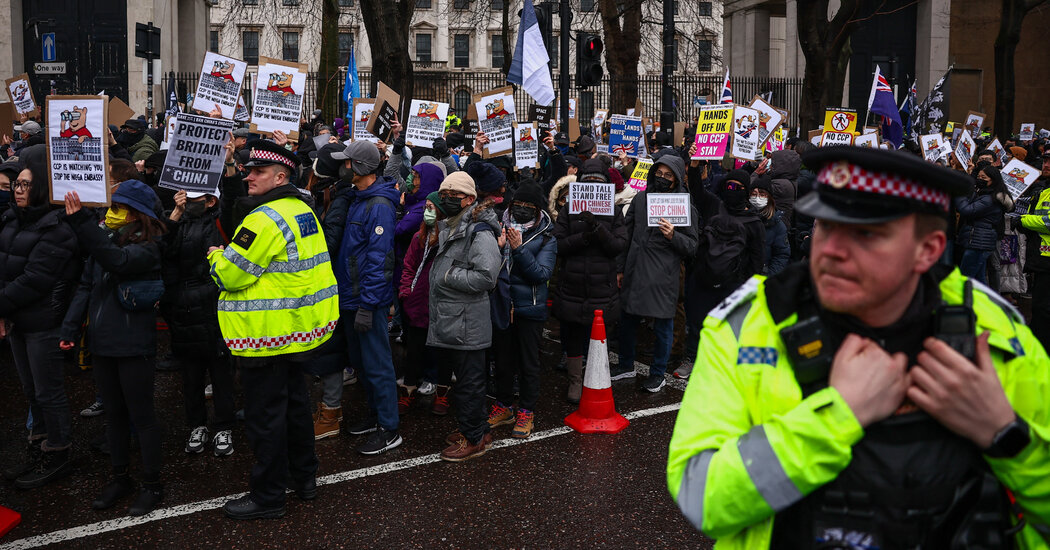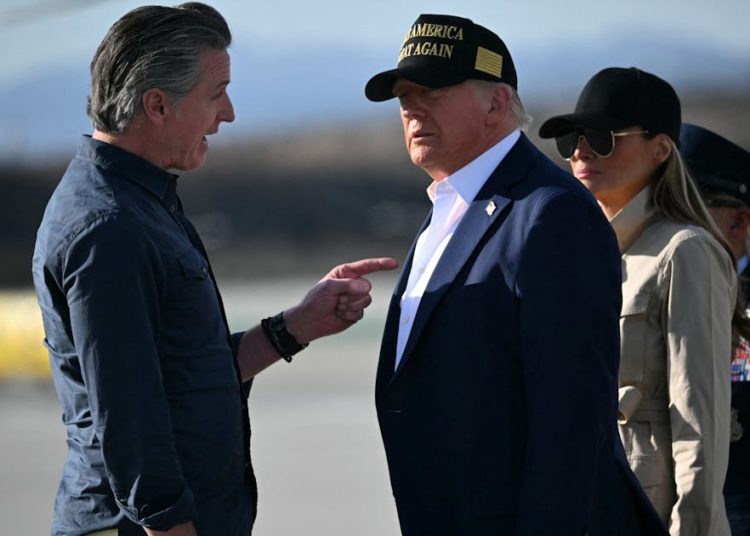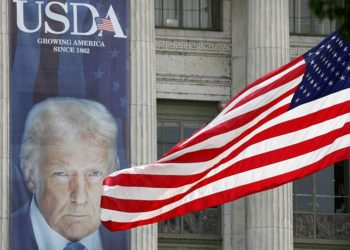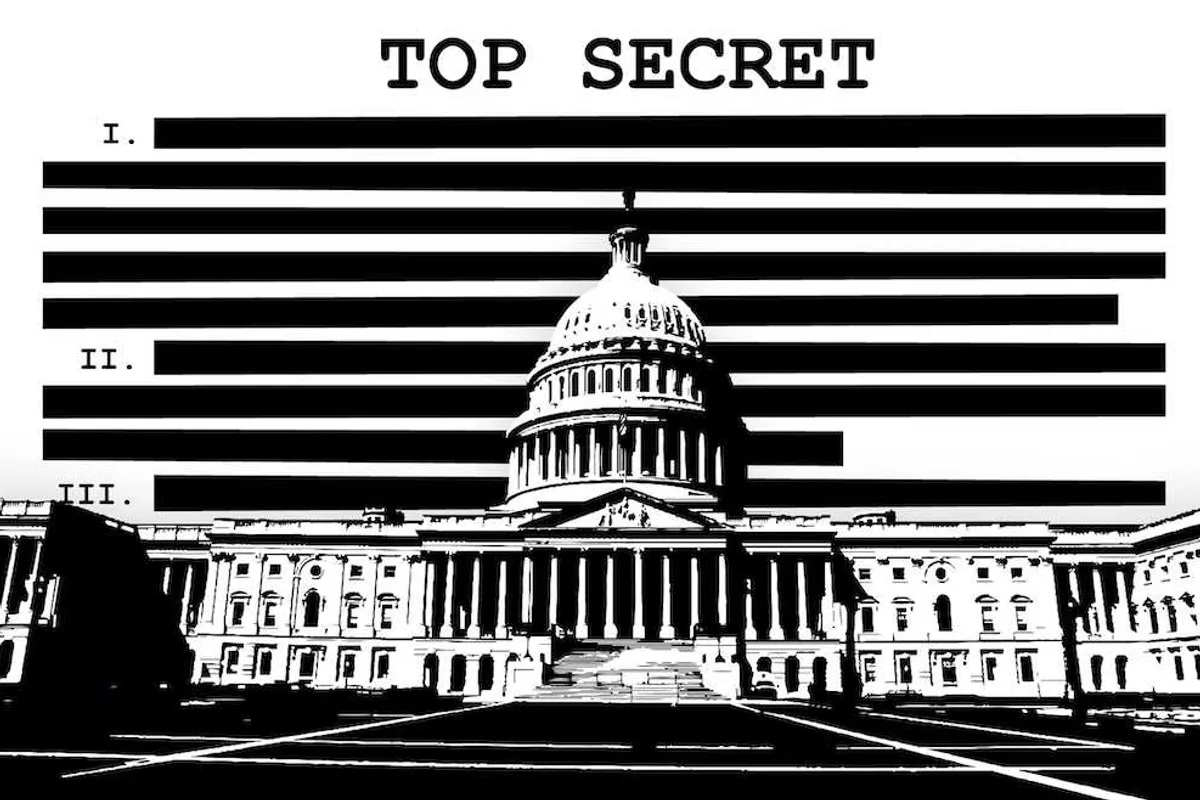Britain’s electronic surveillance agency devotes more resources to China than any other mission. The country’s foreign spy service has clandestine officers around the world to thwart the Chinese threat. The head of MI5, focused on domestic risks, said this month that Chinese spies threaten national security “every day.”
The message from Britain’s intelligence agencies has been consistent: China is a clear threat.
The message from the rest of the British government has been blurrier. This month, prosecutors dropped charges against two British men accused of spying on behalf of China. The case fell apart after the government would not confirm for legal purposes that China was an enemy or threat to national security.
Conservative lawmakers accused Prime Minister Keir Starmer’s government of abandoning the case over fears a trial would anger China and harm economic ties between the two countries, charges he rejected.
At the same time, British officials have been debating whether to allow China to build a massive new embassy near the Tower of London. Security officials worry the building will be a nest of spying. The government delayed a decision due last week about whether to allow construction.
Both issues highlight the trade-offs that Britain and its allies face navigating relations with China. Western officials want the economic benefits of trading with China, the world’s second-largest economy, yet must balance that desire with the security risks that China poses. China has aggressively spied on Britain and its allies, not only by sweeping up communications but also conducting more pernicious operations such as burrowing into the networks of dams and electrical grids.
The tension is acute in Britain, economically weakened in the decade since Brexit and struggling to attract investment and shore up domestic demand.
And China can retaliate. Its government can discourage Chinese investment and essentially tell state-owned companies to limit their business in Britain. It can restrict British exports through tariffs, including on autos, one of Britain’s top export commodities, said Eswar Prasad, a trade policy professor at Cornell University. Additionally, China uses a lot of British bank services that it could divert elsewhere, he said.
“Britain is in a very weak economic position,” he said, adding, “China is seen as a potential benefactor, if not savior.”
An Economic Lifeline
Britain has much to gain and lose in its relationship with China. China was its fifth-largest trading partner, with trade totaling nearly £100 billion a year, according to government data. Imports from China accounted for more than 70 percent of the total, including telecommunications equipment and machinery.
British leaders have sought in recent years to capitalize on China’s economic might. David Cameron, the prime minister from 2010 to 2016, oversaw what his government described as a “golden era” of close economic relations with China. His successor, Theresa May, traveled to Beijing in 2018 to bolster trade deals. Boris Johnson once vowed his government would be “pro-China.”
Relations between the countries ebbed because of British concerns over Chinese human rights and relentless cyberattacks. Under pressure from the first Trump administration, which took a hard line on China, Britain banned equipment from the Chinese technology giant Huawei in 2020 in the country’s high-speed wireless network. The move infuriated Chinese officials, who vowed Britain would “bear the consequences.”
At the time, British officials presciently noted the Huawei episode was one of many complicated questions about China they would face in the years to come.
The rift only widened after the arrests of the two men in April 2024, accused of spying on behalf of China and charged with violating Britain’s Official Secrets Act. They were suspected of funneling information to a Chinese intelligence agent working for a company linked to China’s powerful Ministry of State Security.
As the case was being prosecuted, Mr. Starmer was elected and attempted a rapprochement with China. Last year at a Group of 20 summit in Rio de Janeiro, he called for a “consistent, durable” relationship with China. He was the first British leader in six years to meet with China’s leader, Xi Jinping.
Then, earlier this month, the government’s case collapsed weeks before trial, and the two men were acquitted. They have denied the charges, as did a Chinese government spokesman.
Mr. Starmer’s critics saw the failed prosecution as political interference. He rebuffed the assertion and blamed Conservatives for moving too slowly to update the country’s laws to allow the case to move forward.
Hoping to tamp down the accusations that the government had undermined the case to avoid damaging trade with Beijing, Mr. Starmer released court documents from an expert witness intended to show that his government was tough on China.
In the documents, the witness — Matthew Collins, Britain’s deputy national security adviser — laid out the clear risks presented by China, saying the country “presents the biggest state-based threat to the U.K.’s economic security.”
Yet he also wrote, while the Conservative Party was in power, that the government was committed to “pursuing a positive economic relationship with China.” He reiterated similar thoughts about a month after Mr. Starmer assumed office as the head of the Labour Party, highlighting the new government’s desire to maintain “positive” relations with Beijing.
His statements showed the tensions that British officials have sought to balance, with mixed results.
“I am not sure if any of us have quite found the absolute way to be ensuring the global economy can benefit from China’s position and so forth while at the same time reining back some of the other aspects, the more worrying aspects of China’s activities,” Mrs. May said in a book about the intelligence-sharing group known as the Five Eyes by the author Richard Kerbaj.
Ken McCallum, the director general of MI5, told reporters during an annual update on Oct. 16 that he was frustrated over the collapse of the case that his agency had helped build.
“Do Chinese state actors present a U.K. national security threat? And the answer is, of course, yes they do, every day. I’ve said that today. I said that last year. I said it the year before, I said it the year before. If I’m in this job a year from now, I’m sure I will say it then too.”
Embassy Row
The Chinese embassy decision has been simmering for months, testing Beijing’s patience. The Chinese authorities have blocked Britain’s plans to rebuild its embassy in Beijing while they await approval for theirs in London.
China’s plans have been dogged by questions of spying and concerns that China could use the embassy to tap into strategic fiber-optic cables under the financial district and run spy operations out of the complex. If the government approves the 5.5-acre complex, it would be the largest diplomatic outpost in Europe.
China bought the property near the Tower of London in 2018 and submitted an application that was rejected in 2022 by the local London borough. Chinese officials resubmitted the request, and President Xi Jinping spoke with Mr. Starmer last year about the embassy.
The British government had been expected to rule on the matter last week but delayed the decision until Dec. 10, citing the complexity of the application.
The Chinese government accused British officials of acting in bad faith and issued a veiled threat that echoed its response in the Huawei case. “The British side,” a Chinese Foreign Ministry spokesman said, “shall bear all consequences.”
Lizzie Dearden contributed reporting.
Adam Goldman is a London-based reporter for The Times who writes about global security.
The post In U.K., China Is a Threat and a Coveted Trade Partner appeared first on New York Times.




